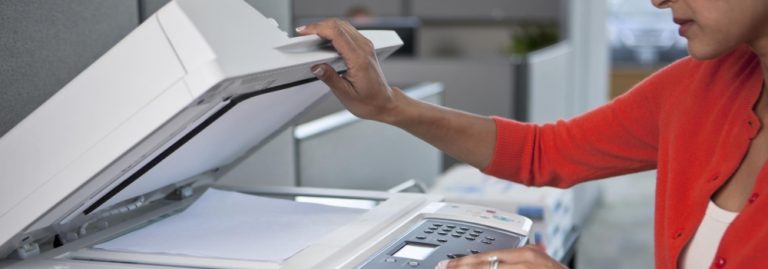12 smart ways you can secure your credit card information and purchases.
By Mark Leary, chief information security officer, Xerox
While it’s impossible to guarantee you won’t be the victim of credit card fraud, you can protect yourself. Here are 12 smart ways you can secure your credit card information and purchases.
 Watch for Scams and Clam up. Once something hits the news, scam artists try to take full advantage of the panic and misinformation. If you ever receive a call from someone claiming to represent your credit card company, ask for their name and employee number. Once you have this, hang up and call the main company phone number and ask for that person. Never reveal personal financial information, such as your credit card number, over the phone or via email. No reputable institution will ever solicit your information in a phone conversation or through email. The only exception is when you initiate the call.
Watch for Scams and Clam up. Once something hits the news, scam artists try to take full advantage of the panic and misinformation. If you ever receive a call from someone claiming to represent your credit card company, ask for their name and employee number. Once you have this, hang up and call the main company phone number and ask for that person. Never reveal personal financial information, such as your credit card number, over the phone or via email. No reputable institution will ever solicit your information in a phone conversation or through email. The only exception is when you initiate the call.
Write AID or SID on the signature panel of the card. AID (ask for ID) or SID (see ID) reminds retailers to ask for another form of ID to confirm the identity of the credit-card user.
Secure your computer. Anti-virus and anti-spyware programs are important if you shop over the Internet, bank online, or maintain personal information on your computer.
Be a shredder. Buy a shredder and be conscientious in its use. Thieves troll through garbage looking for credit card numbers. Be sure to shred unsolicited credit card offers as well.
Don’t leave credit card info on your computer. Particularly if you use a laptop, which is often an item targeted by thieves, don’t leave your credit card number and information on your computer. This applies to your email inbox, as well as any document files you may keep on your computer. This is also true for desktop computers, particularly when they may be accessible to a roommate, your children’s friends, a housekeeper, and so on.
Know who you are buying from. Do your homework before you offer up your credit card number. Check out the online merchant with the Better Business Bureau or do a Web search to see if there have been any published complaints about credit card scams involving the merchant. Always make sure that a website is SSL or S-TTL protected before you provide any type of payment information. Sites such as eBay provide feedback from buyers about their experiences and also perform due diligence before authorizing a merchant to sell through their site.
Designate an online credit card. Use just one card for online transactions makes it simpler to track fraud. Always use a credit card over a debit card. Credit cards are backed by a financial institution. Debit cards take longer to recover your money, and criminals can wipe out your financial account.
File your number. Make sure you have your credit card numbers and contact information for the credit card companies filed in a secure location. If you are a victim of credit card fraud, you’ll find it easier to call and advise the companies if the information is on hand.
Secure Network. It’s never a good idea to pay bills online at a shared public computer, or on your own computer over a public wireless Internet, or Wi-Fi connection. Always be sure that the network is secure, or you are using a virtual private network (VPN). To tell if a Wi-Fi network is secure, when you go to log on to the network it will say whether it is secure and you will need a password to use the network.
Watch out for fraud hotspots. Gas stations and ATM machines are hotspots for so-called “skimmers,” machines that scammers install to capture your card information. Watch out for ATM parts that look unusual and always cover your hand when typing your PIN.
Sign up for fraud alerts. Many financial institutions will let you set alerts for account transactions. Even better, some allow you to block transactions that are out of the ordinary for you, such as for online purchases at a certain kind of retailer or for any purchases over $500.
Don’t let your guard down. If you think your information has been compromised, don’t assume everything’s fine after a few months. Stolen card information is often sold to a variety of groups on the black market who may hold onto it for months or even years. Invest in a credit monitoring or identity theft protection tool.
Links to More Information
Microsoft Safety & Security Center: Practical security tips for you and your family, useful resources and links, and a forum for you to provide feedback and ask security-related questions.
StaySafeOnline.org: From the National Cyber Security Alliance, which seeks to educate a digital society to use the Internet safely and securely at home, work and school.
Stop. Think. Connect: A national public awareness campaign sponsored by the U.S. Department of Homeland Security. The campaign seeks to help the American public understand cyber threats, and empower the public to be safer and more secure online.



What is secure about security code? Once someone ask for it they have it.